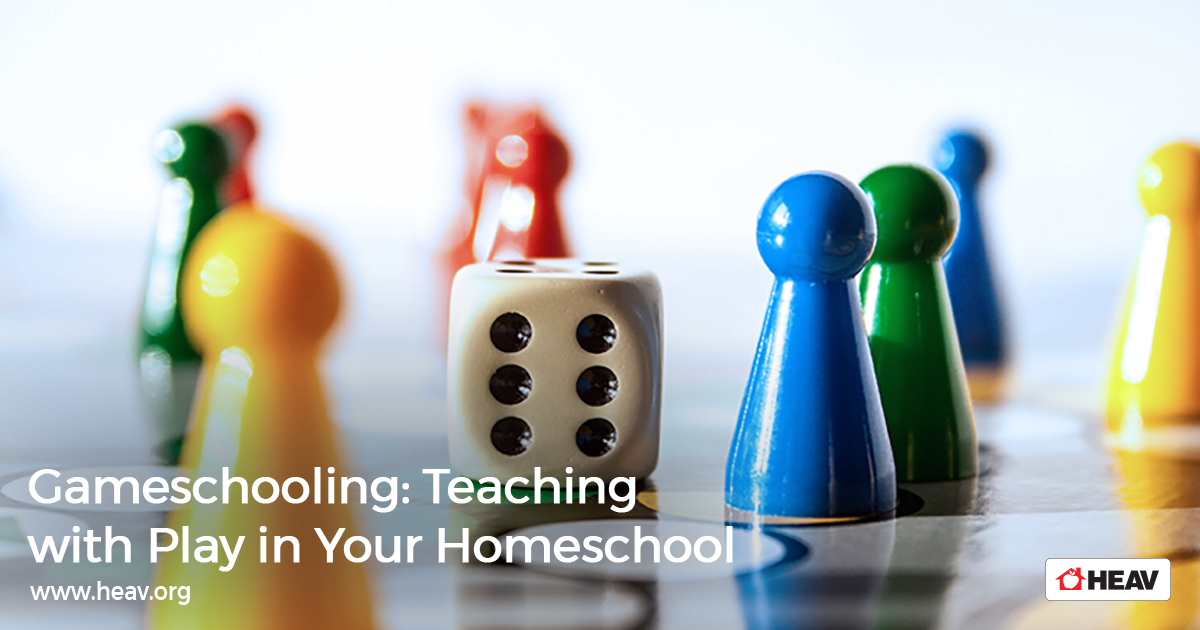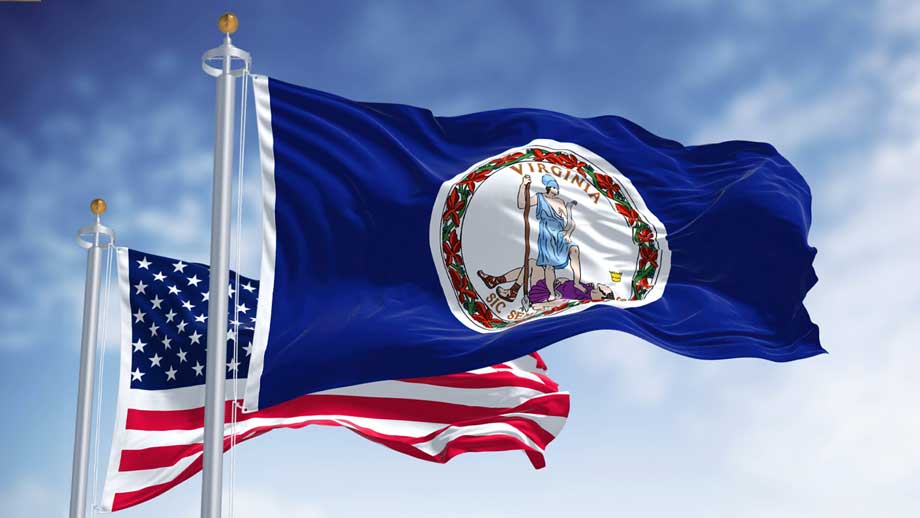Gameschooling: Teaching with Play in Your Homeschool
Have you–or do you want to–take a break from homeschooling? Try adding some homeschool games into your planning. Include some fun, fresh “gameschooling” lessons, or try using games as family activities to introduce and reinforce concepts and lessons and keep the material fresh in your students’ minds.
A Family That Plays Together
Memory, reasoning, and decision-making are essential skills that go beyond basic reading and math (which are also greatly enhanced through board-game play.) Read this article, Six Benefits to Playing Board Games in Your Homeschool, on all the benefits games have to offer.
Crystal Wagner from Triumphant Learning shares her ideas for incorporating games into homeschooling. Playing games makes learning fun, it is excellent for learning communications skills, increases critical thinking and strategy skills, builds character, encourages taking turns and good sportsmanship, and many other positive qualities and skills.
Coining a new term, “gameschooling,” Caitlin Fitzpatrick Curley shares her insight into homeschooling with games. Caitlin shares the benefits of board games, how to work on academic skills through board game play, gameschooling tips for beginners, and a recommended games section that includes clickable categories with detailed lists of games.
Educational Board Games by Topic
This section includes some of our favorite homeschool board games for teaching academic skills. *This section may contain affiliate links, for which HEAV may earn a small commission When you purchase through these links, you help promote and protect homeschooling in Virginia.
Many of these games may also be found at yard sales, at consignment shops, or even at your local library.
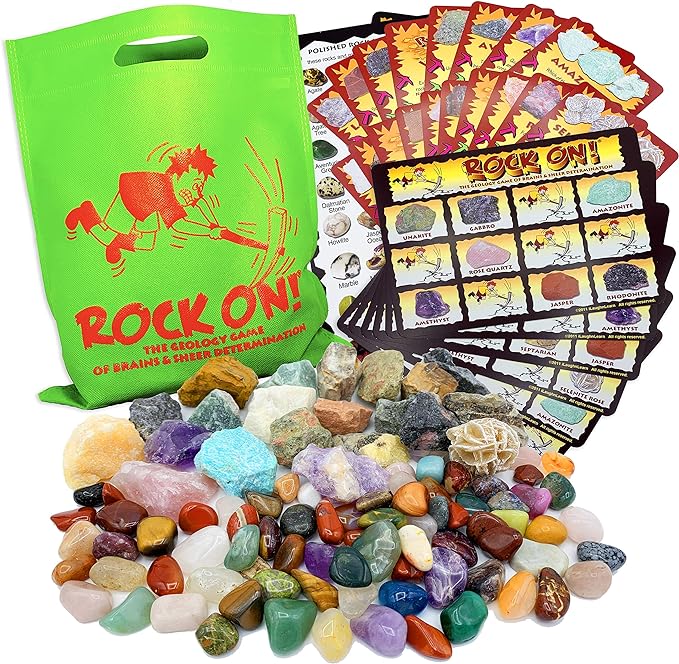
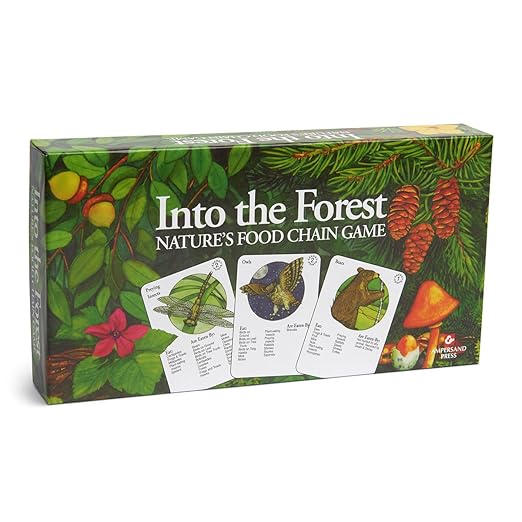
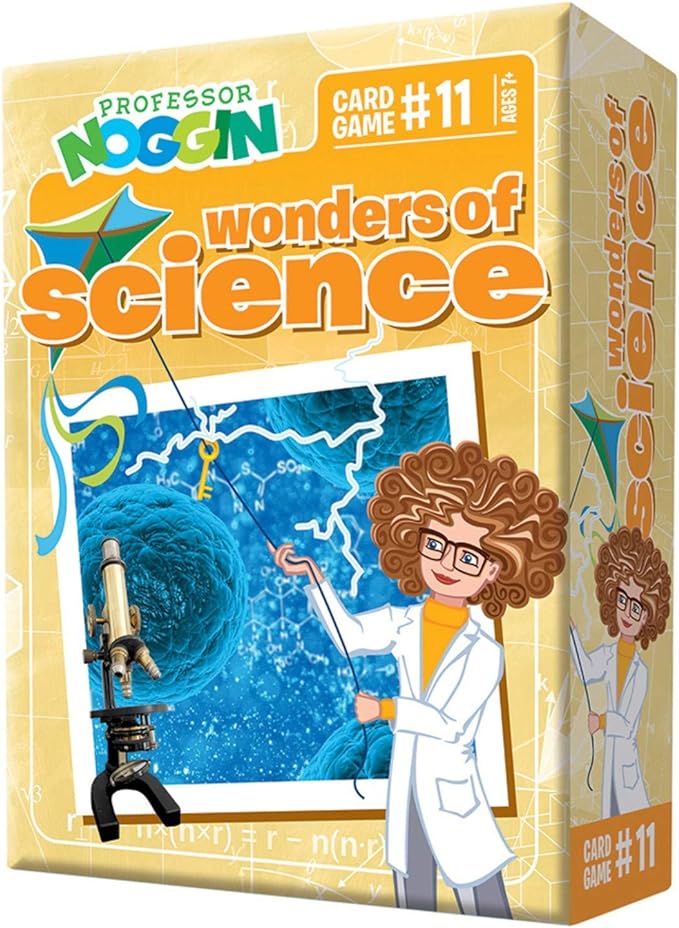
Science
Bugs n Slugs What kid doesn’t like to learn all about the things that slither and squirm. Well, some don’t, but the game is fun for everyone. Ages 5 and up.
Into the Forest The one teaches all about the natural food relationships, and the importance of plants in food energy. Ages 7 and up
Professor Noggin’s the Wonders of Science Professor Noggin’s card games encourage kids to learn all about their favorite subject with trivia, true-and-false, and multiple choice questions. Various levels make it appropriate for younger and older kids. Be sure to check out the entire series! Ages 7 and up.
Qurious Space Appropriate for all ages, this unique game teaches all about the Solar System, the Milky Way, and all things outer space. Ages 3 and up.
Healthy Hurdles So appropriate for teaching about nutrition and health, this game requires kids to get active—lots of fun wiggly youngsters. Ages 6 to 8.
Rock On Geology Game Tactile and FUN, this one combines kids’ innate love of collections with their natural curiosity to teach all about geology and rocks. Ages 5 and up
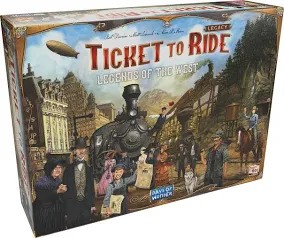
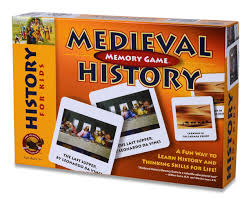
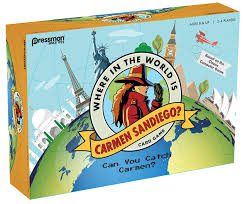
History & Geography
Professor Noggin’s Civil War If you like this one, don’t stop here. Check out Medieval Times, History of the United States, and more. There is an entire series that each teach a different topic. Ages 7 and up.
7 Wonders You are the leader of one of the seven great cities of the Ancient World. Gather resources, develop commercial routes, build your city, and erect an architectural wonder which will transcend future times. Ages 10 and up.
Where in the World is Carmen Sandiego? This is a classic that is still fun. Where WILL Carmen turn up next? Ages 10 and up.
Medieval History Memory Game – This one really is appropriate for young children—odd for a medieval history game–and adults will still find it fun. Ages 3 to 12.
Way Back When in History Journey through five time periods in early America: Explorers, 13 Colonies, American Revolution, Constitution, and the Civil War. Ages 8 and up.
Catan This game is huge in the gaming world and be warned—it can be addictive! Players strategize to collect resources—bricks, wheat, and lumber–to build roads, settlements, and cities. Ages 10 and up.
Ticket to Ride is a cross-country train adventure that celebrates Fogg’s impetuous gamble to travel “Around the World in 80 Days.” The objective is to see who can travel by rail to the most cities in North America in just seven days. Ages 8 and up.
Expedition: Famous Explorers Players lead three expeditions to various locations by placing arrows on a map. Simple rules make it easy for young children to take part. Ages 7 and up.
BrainBox World History Fast, fun memory game that does not require any pens, pencils, paper, playing board–or even a table, making it a great travel game. There are 55 cards featuring fun facts about famous people and events in the history of our fascinating world, and players have 10 seconds to study a card before being asked a question from the back, chosen by the roll of the die. Since it’s more about observation and memory, not learned facts, anyone can win! Ages 8 and up.
Historical Conquest Each player needs a starter deck to play. Each Starter Deck (there are six choices) has its own unique set of cards; they are not based on a particular theme or time period but span world history throughout time. Ages 12 and up.
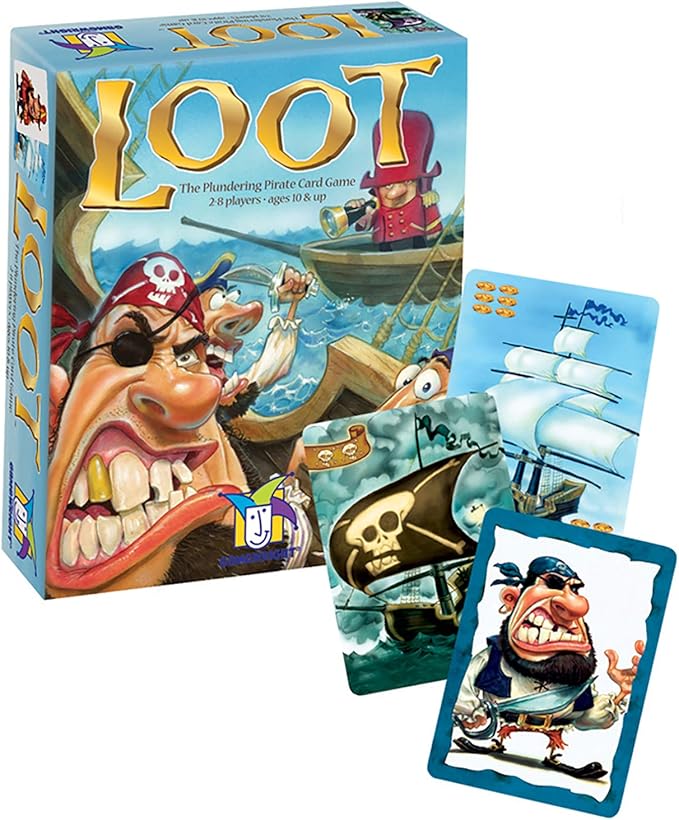
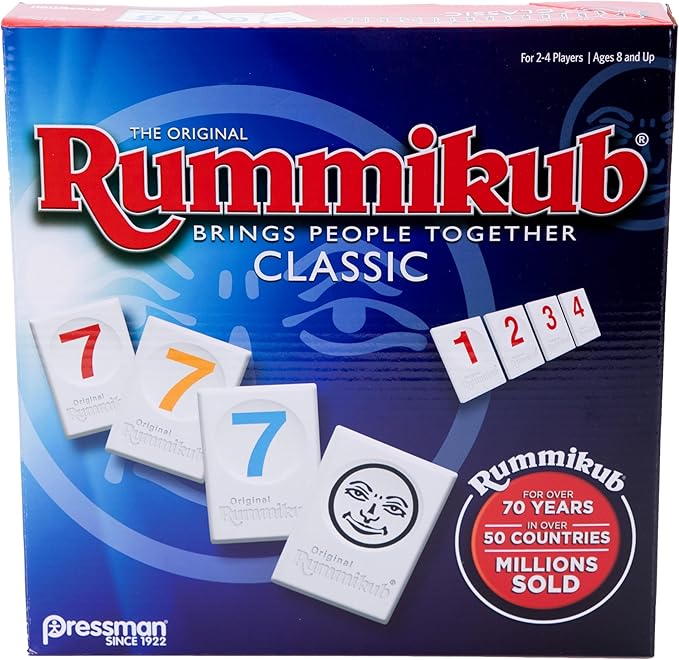
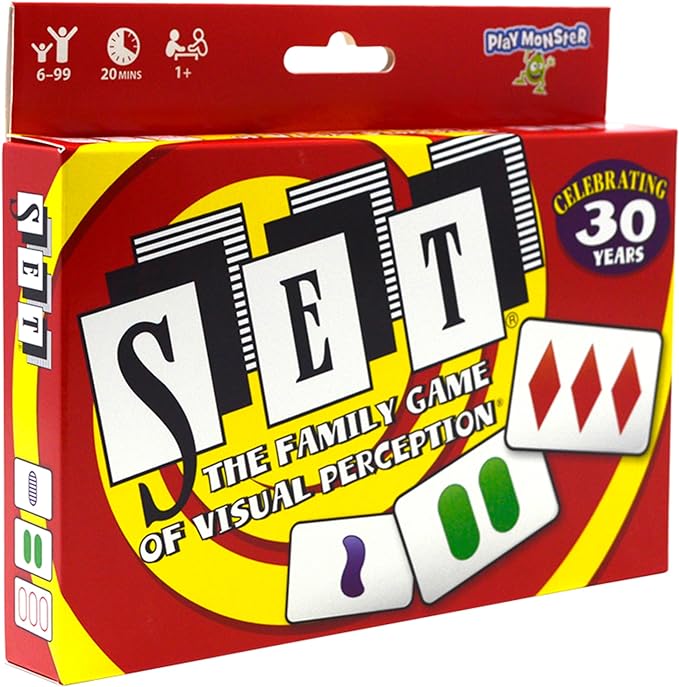
Math & Logic
Loot Pirates, treasure, and plundering—what child can resist? Don’t present this one as a learning game—it makes a great family game night addition, or even just a diversion to fill a random 20 minutes. It’s FUN, fast, and kids will learn math, logic, strategy, and problem-solving. Ages 8 and up.
Equate: the Equation Thinking Game Like a crossword puzzle with numbers, this game will take players from simple addition and subtraction through the order of operations. Ages 8 and up
Sum Swamp This earned the Oppenheim Best Toy Award. Kids will likely know that it’s a “math” game, but it’s a lot of fun, so they won’t care. Ages 4 and up.
Rummikub This classic is one of the most popular games ever. Sturdy, bright-colored tiles, and fun and challenging play for almost any age make this a game night favorite. Ages 8 and up.
Set: the Family Game of Visual Perception Fast-paced and fun, this triple-match game gives kids a break from “taking turns.” The manufacturer says ages 6 and up, but younger kids can play if you slow it down. Ages 6 to adult.
Money Bags: Coin Value Game Don’t tell them it’s “math” and they’ll never know! This award winning strategy game teaches kids—wait for it—how to count money and make change as they race around the board. Ages 7 and up.
Logic Links Sold by Mindware, one of the top-ranking creators of educational toys (think Qwirkle, marble runs, and building sets), Logic Links uses puzzles, each with a series of clues that instruct a player where to place the colored chips to solve the puzzle. Ages 6 to 15.
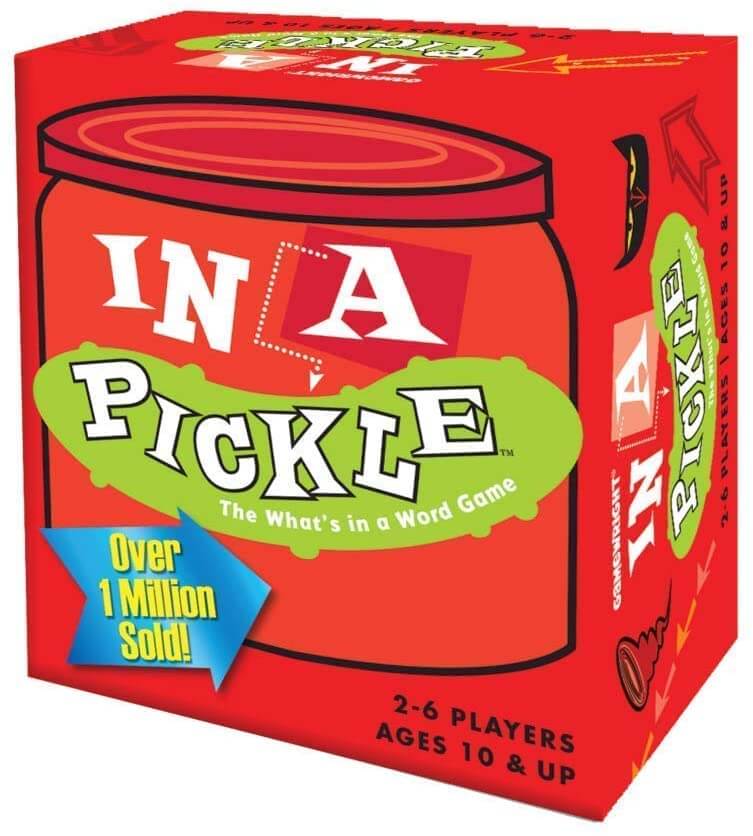
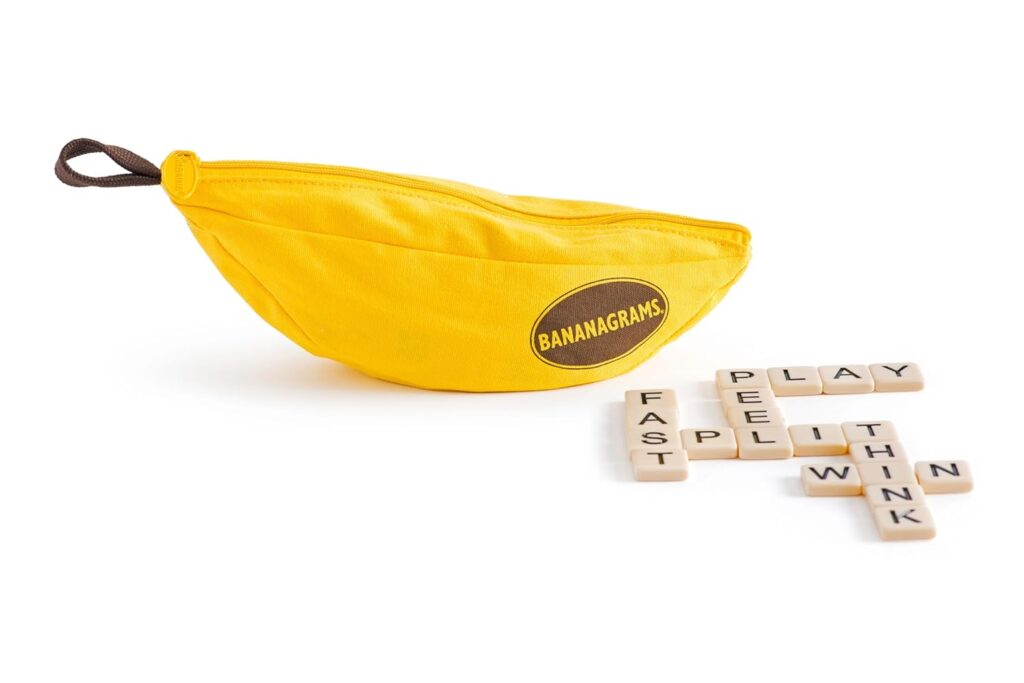
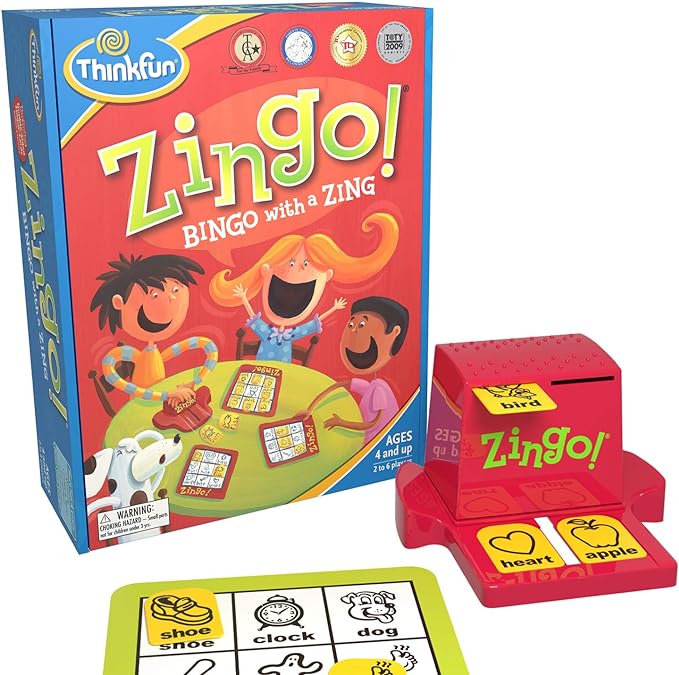
Reading and Phonics
Bananagrams It has nothing whatsoever to do with bananas. Scrabble-like, it requires you to build words crossword-puzzle style, in fast-paced, super play. It’s much more fun than it sounds, and comes in a travel-perfect, banana-shaped pouch. Ages 7 and up. In a Pickle Silly, outrageous, and fun scenarios to teach spatial relations and logical thinking. Can a giraffe fit in a phone booth? Does a sofa fit in a shopping cart? It all depends, as the manufacturer says, on how you size it up. For instance, there’s some juice in a pickle, in a supermarket, in a parking lot. Try to win a set of cards by fitting smaller things into bigger things, without getting trumped. Ages 10 and up. Zingo Like Bingo—but with a twist—this is fun for all ages, but is most appropriate for pre-readers and early readers. Ages 4 and up. Letter Tycoon Build words, buy letters, and score big! Use your hand of cards plus any community cards to make a word worth valuable money and stocks. Collect letter patents to earn royalties and invoke unique privileges. Patents, money, and stocks add up to victory. Ages 10 and up.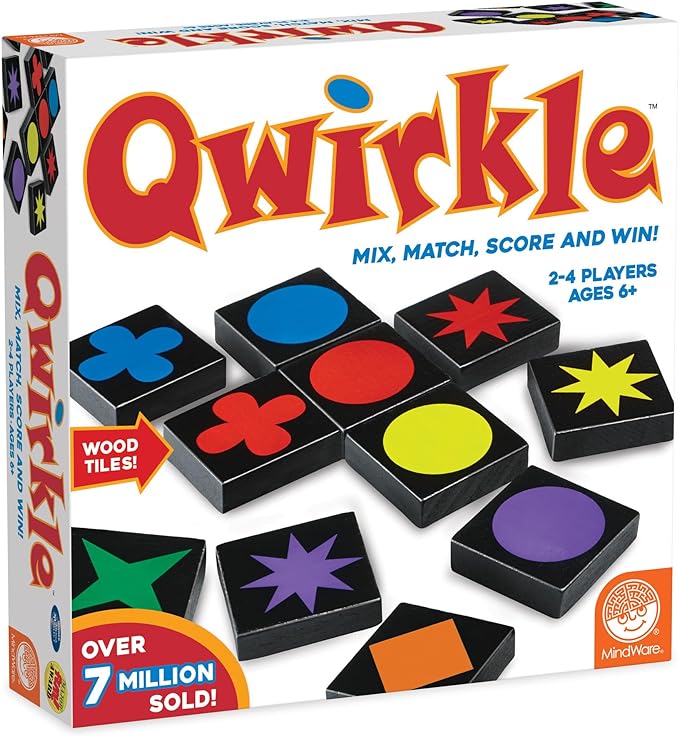
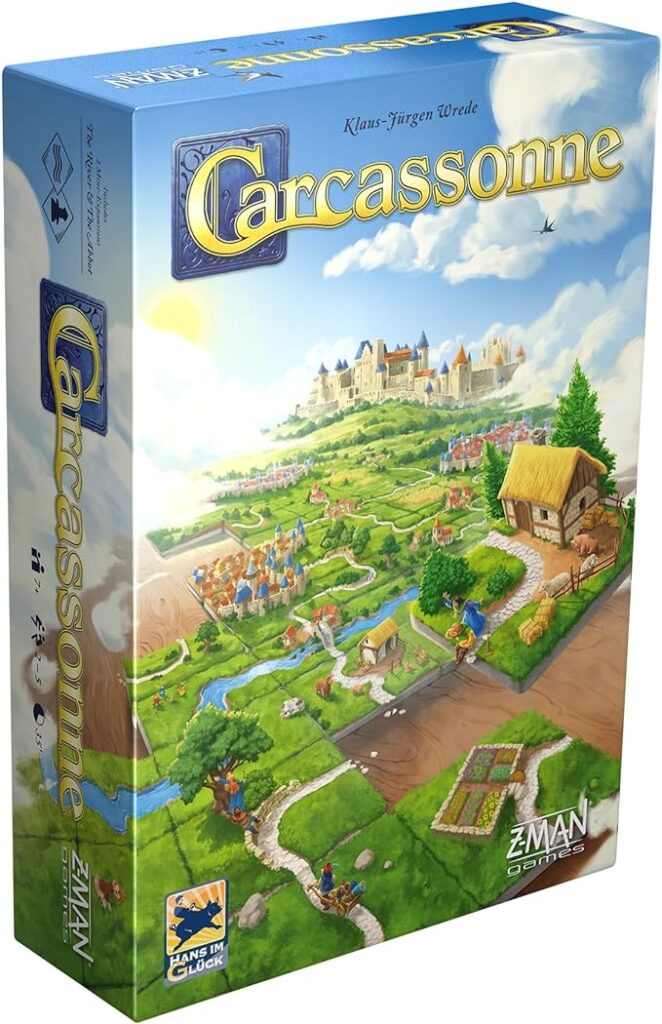
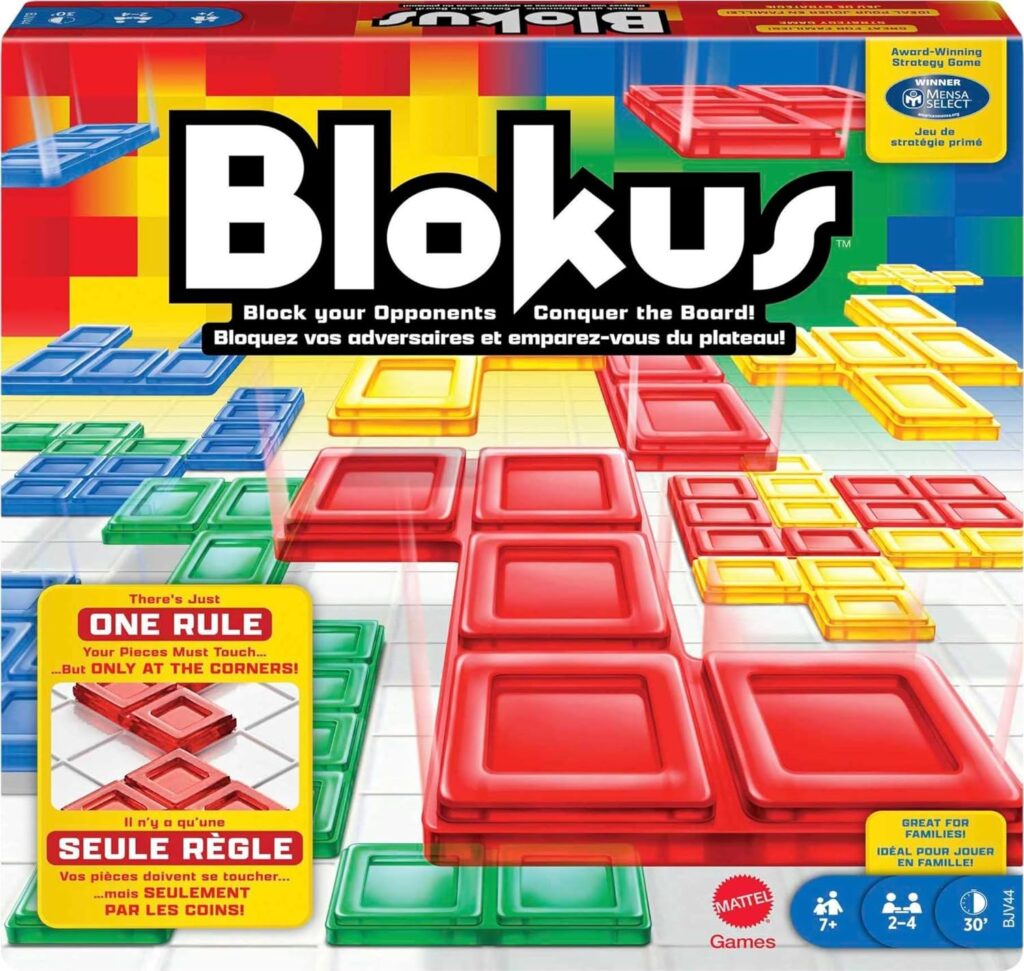
Strategy and Logic
Blokus This classic is easy to learn but, like many traditional games, takes a lifetime to master. Ages 5 and up.
Carcasonne This one takes a while to set up and learn, but it can keep the whole family engaged. You build the area surrounding a city, one tile at a time, placing followers on the land as you go. There are a lot of expansion packs available, but they aren’t necessary to enjoy the game. Ages 8 and up.
Qwirkle Sort of a cross between Dominos and Blink, this is an all-ages type of game that is simple to learn and can be used to teach matching and sorting in the preschool years, as well as strategy and problem solving. Ages 3 and up.
Risk This classic military strategy game is a favorite of many dads and sons. Ages 10 and up.
Steam: Rails to Riches In Steam, you build railroads and deliver goods along an ever-changing network of tracks and stations. You build the tracks, upgrade towns, improve your train, and grab the right goods to make the longest, most profitable deliveries. Score your deliveries and add to your income or victory points, balancing your need to invest against your quest to win the game. Ages 12 to 16.
Tom’s Toys – Old-fashioned blocks taken to the next level to stimulate creativity, logical thinking, cognitive development, and more.
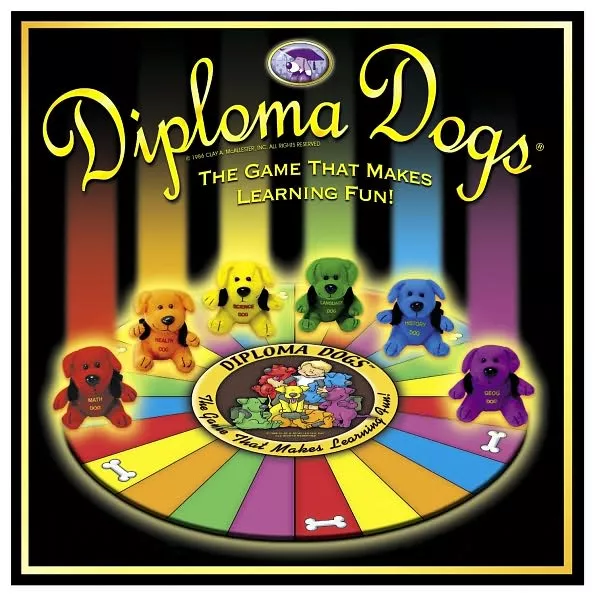
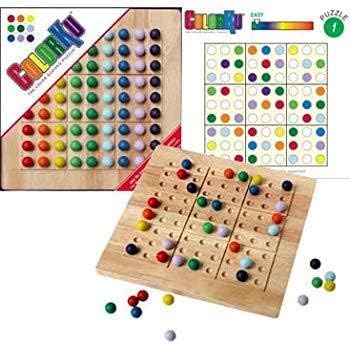
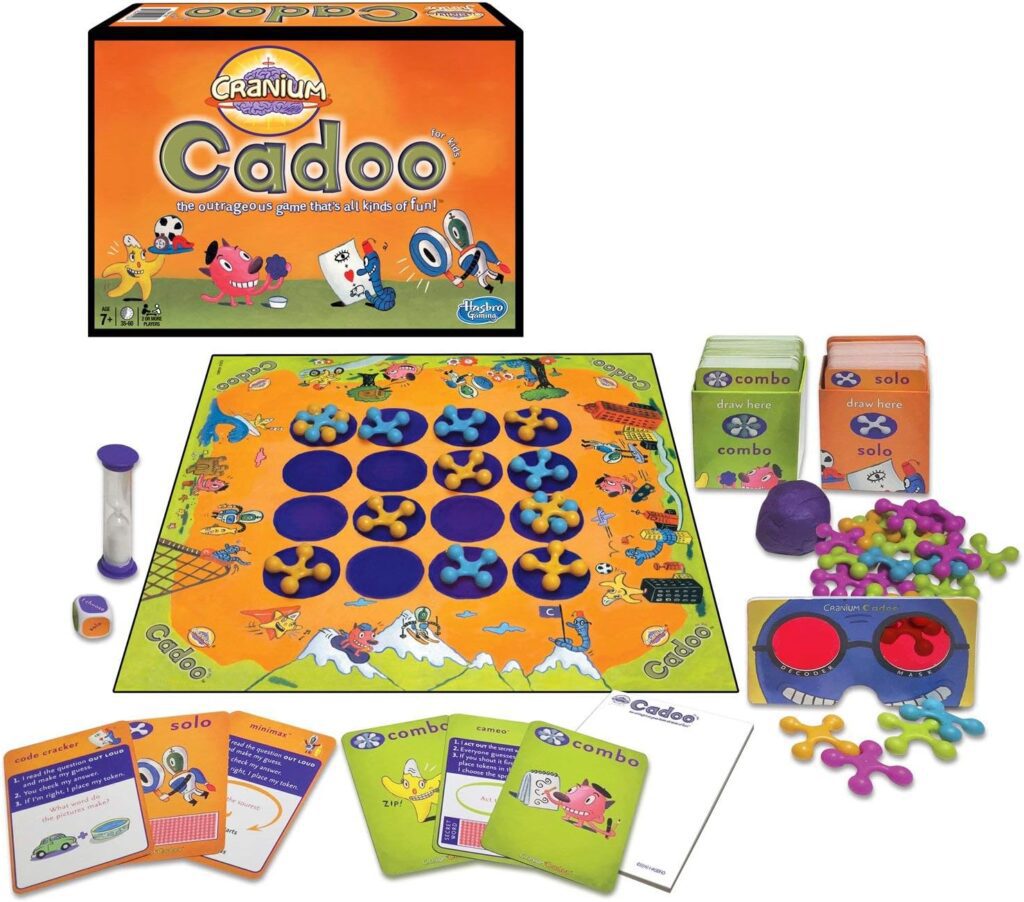
Educational Favorites
Cranium Cadoo Perfect for kids who quickly tire of moving game pieces on a board, Cadoo incorporates play dough, a special decoder mask, drawing pens, and more in the gameplay, giving kids a chance to unleash their own ingenuity and creativity. Ages 7 and up
Diploma Dogs To be honest, it was the cute little dogs that sold us on this one, but the with the variety of questions and several levels, it’s educationally solid. Thee dog biscuits, bones, and little backpacks are really cute and engaging, too. There is also a “classroom size” version that would be great for support groups. Ages 3 and up.
Coloruku: Like Soduku, but with colors, there are five levels of difficulty that make this appropriate for everyone. (Note: even adults should start at the simplest level.) Ages 8 and up
Enjoy this article?
check out these posts!Check out these posts for more ideas!

